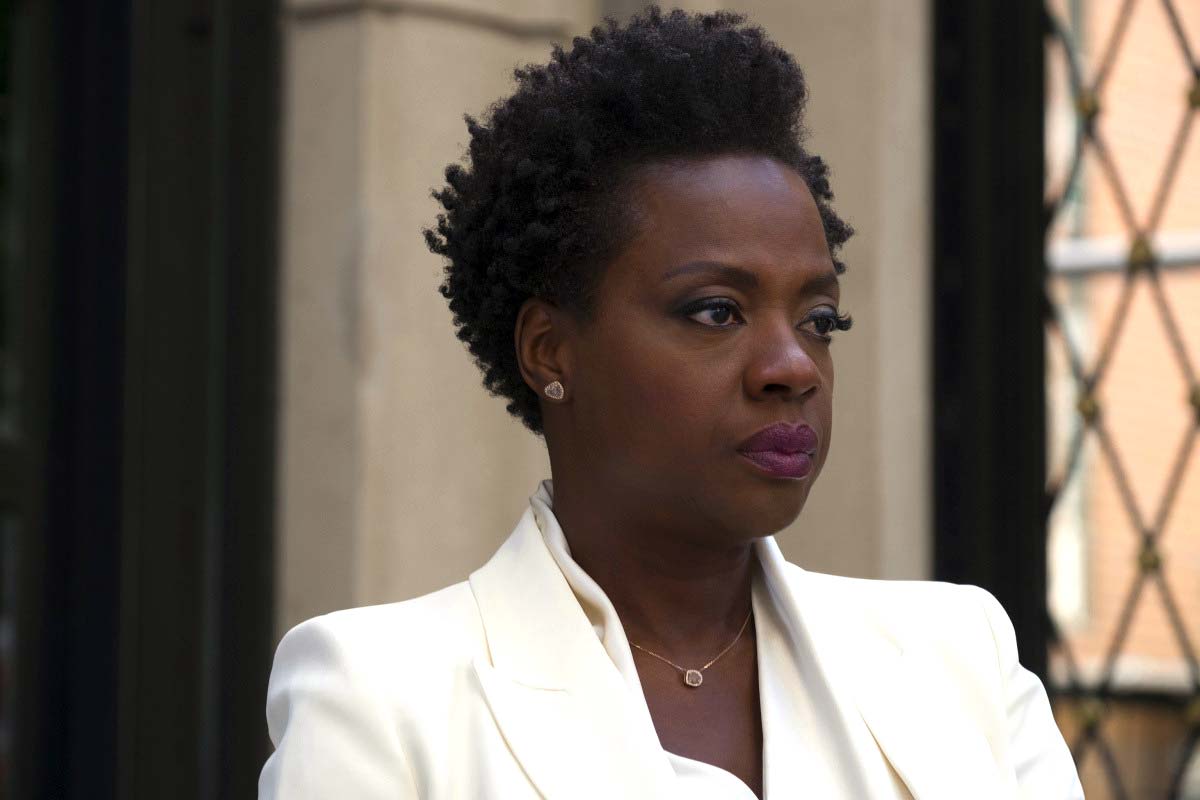Early in “Widows,“ Steve McQueen’s stylish new adaptation of Lynda La Plante’s British miniseries, two Chicago politicians talk over the stakes of their upcoming special election. One is the current alderman, Tom Mulligan (Robert Duvall), the other is his son Jack (Colin Farrell), angling to take over his dad’s seat, who warns that if they can’t crush an outsider candidate, “we won’t have a pot to piss in.” His father, referencing a pricey piece of modern art the younger man has just finished showing off, retorts, “Says the man with the $50,000 piece of wallpaper.”
READ MORE: 55 Must-See Films: The 2018 Fall Movie Preview
“It’s art,” corrects his son.
“Wallpaper,” the old man replies.
READ MORE: Toronto International Film Festival: 22 Most Anticipated Movies
And they go back and forth like that for a while. It’s a throwaway bit, barely connected to the picture’s central story. It plays more like a winking in-joke: hey look, here’s Steve McQueen, a guy who makes art (quite literally — he broke through as a visual artist), trying his hand at the wallpaper of a heist thriller genre movie.
And through much of “Widows,” McQueen tries mightily to fuse those approaches. His impulse for experimentation is present from the opening frames, which intercut the morning routines of several career crooks and their wives with their last, big job going sideways— the intermingling they all must do, every day, of criminal and domestic matters. McQueen gets right down to business; the entire crew is dead before the title card, and soon Veronica Rawlings (Viola Davis, sturdy as ever), widow of ringleader Harry (Liam Neeson) is paid a scary visit by criminal/would-be politico Jamal Manning (Brian Tyree Henry). Manning and his brother Jatemme (a terrifying Daniel Kaluuya) were the targets of that last job, and two million dollars of their money went up in flames when Harry’s crew got burned. The Mannings give Veronica thirty days to pay it back.
READ MORE: The 100 Most Anticipated Films Of 2018
In desperation, she reaches out to Linda (Michelle Rodriguez) and Alice (Elizabeth Debicki), whose husbands were also killed on the job. (The ads would have you believe that Carrie Coon is also part of this makeshift crew, but the ads are dirty liars; she’s in maybe three scenes.) Veronica’s proposal: using her late husband’s prepared plan for his next job, they steal enough money to pay back the Mannings and live happily ever after. It’s an imperfect idea “This is not your world,” she’s told, not inaccurately, by one of her husband’s associates — but it’s all they’ve got.
The “Widows” screenplay (by Gillian Flynn and McQueen) goes about checking off the heist narrative boxes—acquiring weapons and getaway vehicles, scoping out the target, filling out the crew— with those elements made (alternately) more amusing or tense by the amateur element. But even when McQueen is fulfilling those obligations, he keeps throwing curveballs; an eccentric detail here, a cockeyed visual there. He uses the reflections of windows as gateways to the past, with one (along with a Nina Simone record) triggering an elegant flashback to Davis and Neeson’s better days. He follows the younger Mulligan from a failed campaign event to his waiting car, eavesdropping on an argument between the candidate and his wife from outside the moving vehicle; we hear but do not see Farrell railing about the broken ward he’s supposed to take over (“These people are killing each other”). It first seems merely like a wild visual choice; only when he gets home do we see what McQueen is up to. He’s spotlighting the transition, in that short distance, from the struggling “inner city” to the lavish accommodations this man enjoys on the very edge of the ward.
Those graceful visual flourishes work, and the thematic ideas they’re highlighting land. But other moments (like Rodriguez’s bizarre encounter with a mourning widower) seem to exist solely to keep the audience off-balance— the kind of fat that’s fine in character drama but throws off the precision of a good heist picture. While McQueen and Flynn’s script is wise to dramatize a world where everybody, from crook to cop to minister, is on the take, there’s some evidence of a struggle within the sprawl of this thing— occasional strands whose connections are tenuous at best and unclear at worst. And though the quiet undercurrent of the Rawlings’ son’s death is effective (particularly when we see the sadly timely circumstances of that death), the Trumpiness of Duvall’s character feels more than a little forced, an ill-advised attempt to shoehorn in some extra “relevance.”
McQueen’s direction of the big actions beats is serviceable— no better, no worse— but there’s no denying that when Davis snarls “Let’s go” as they pull their masks on, and Hans Zimmer’s relentless score kicks in, that we’re there, we’re with them, and we’re ready to go to. “Widows” is definitely a good film and one that often has greatness in its grasp. But it often feels like, at some point in the process, McQueen needed to decide if he was making wallpaper or art. [B]
Check out all our coverage from the 2018 Toronto International Film Festival here.





